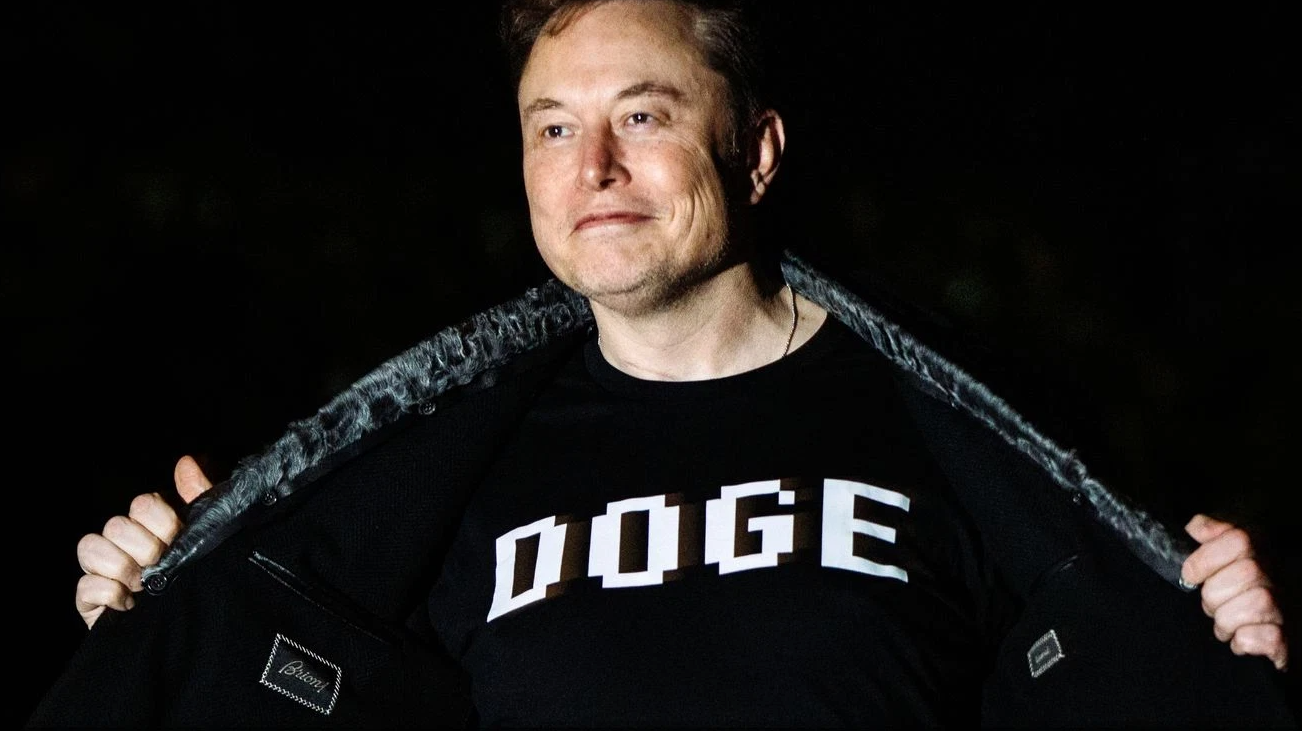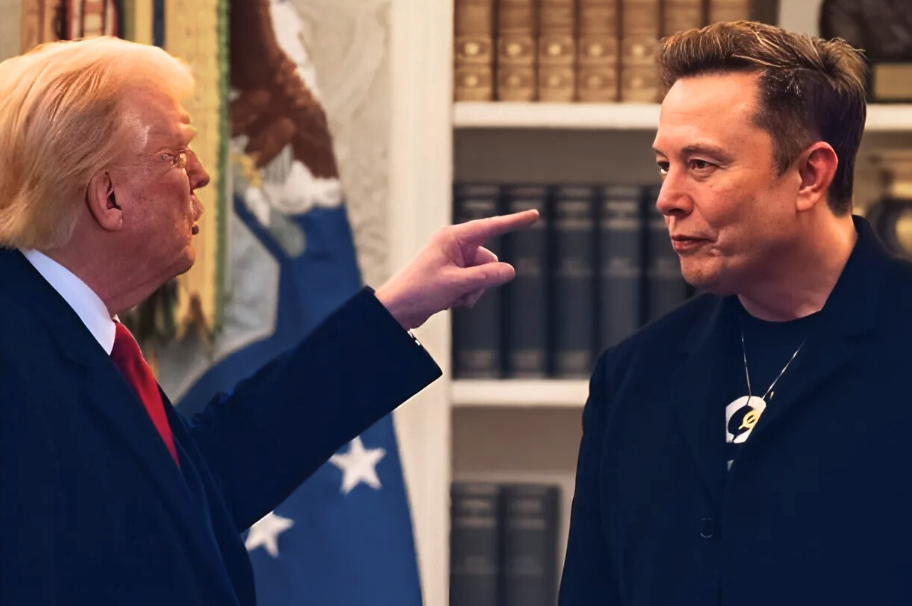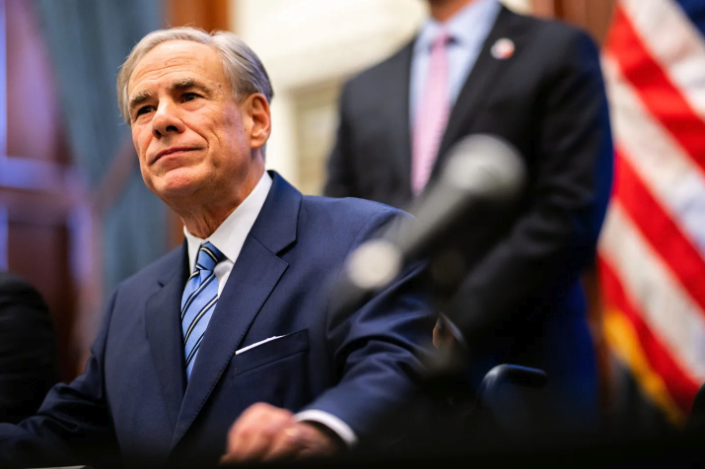Musk’s DOGE staff reportedly granted access to networks with nuclear secrets despite no expertise

A brewing controversy has gripped Washington as reports suggest that employees of Elon Musk’s Department of Government Efficiency (DOGE) were granted accounts on classified computer networks containing highly sensitive information about America’s nuclear weapons.
The Department of Energy (DOE), which oversees these networks, has firmly denied these claims, asserting that no DOGE personnel accessed or were granted access to such systems.
This clash of narratives has raised alarms among national security experts, lawmakers, and the public, highlighting tensions between DOGE’s efficiency-driven mission and the stringent security protocols required for handling classified information.
Background on DOGE
The Department of Government Efficiency (DOGE) was established by executive order on January 20, 2025, under the second Trump administration, with a mandate to slash federal spending and streamline government operations (White House).
Led by Elon Musk, DOGE has been tasked with reviewing agency data, terminating contracts, and facilitating layoffs across federal departments.
Its mission includes modernizing federal technology and identifying waste, fraud, and abuse (DOGE Website).
However, DOGE’s operations have sparked controversy. Critics argue that its staff, often young tech enthusiasts with limited government experience, lack the expertise and security clearances needed to handle sensitive information.
DOGE has already faced scrutiny for accessing systems at the Treasury Department and the Department of Labor, often over objections from career officials.
The Allegations of Access to Classified Networks
According to NPR, two DOGE employees—Luke Farritor, a 23-year-old former SpaceX intern, and Adam Ramada, a Miami-based venture capitalist—had accounts on the National Nuclear Security Administration’s (NNSA) Enterprise Secure Network (ESN) for at least two weeks.
The ESN is a highly restricted system used to transmit “restricted data” about America’s nuclear weapons designs and special nuclear materials.
A second network, the Secret Internet Protocol Router Network (SIPRNet), used by the Department of Defense to communicate with the DOE about warheads, was also reportedly involved.
Two anonymous sources with direct access to the networks told NPR they saw Farritor and Ramada’s names in the network directories, indicating that accounts were created.
These directories are visible to thousands of employees at nuclear facilities and laboratories across the U.S., but access to the networks themselves requires specific terminals in secure rooms and a “Q” clearance, a rigorous process that can take months.
Neither Farritor nor Ramada reportedly had such clearances or prior experience with nuclear weapons or classified information.
The sources described the accounts as a “toehold” that could allow DOGE staff to request classified information, potentially leading to broader access.
“They’re getting a little further in, it’s something to make note of,” one source told NPR. “It could lead to something bigger.”
These allegations were echoed by other outlets, including Newsweek and Yahoo News, which reported that DOGE had “infiltrated” these confidential networks.
DOE’s Response and Denials
The DOE swiftly denied the allegations. A spokesperson initially told NPR, “This reporting is false.
No DOGE personnel have accessed these NNSA systems. The two DOGE individuals in question worked within the agency for several days and departed DOE in February.”
In a follow-up statement on April 28, 2025, the DOE clarified that accounts were created for Farritor and Ramada but were never activated or accessed.
“DOE is able to confirm that these accounts in question were never activated and have never been accessed,” the statement read.
Energy Secretary Chris Wright has also addressed the issue, emphasizing that DOGE staffers at the DOE lack security clearances and do not have access to classified information, including nuclear secrets.
“I’ve heard these rumors. They’re like seeing our nuclear secrets. None of that is true at all,” Wright told CNBC.
Wright noted that the three DOGE representatives at the DOE, including Farritor, are “friends in Elon’s broader circle” tasked with providing feedback, not handling sensitive data.
The Individuals Involved
Luke Farritor, 23, is a former SpaceX intern and one of six young engineers hired by Musk to work at DOGE, according to The New York Times.
He is listed in the DOE’s staff directory as an “information engineer”.
Farritor, a University of Nebraska-Lincoln student who gained recognition for decoding ancient Roman scrolls, has no known experience with nuclear weapons or classified information.
Adam Ramada, a Miami-based venture capitalist, is also listed in the DOE’s staff registry, reportedly as an employee of the General Services Administration.
Like Farritor, Ramada lacks a background in handling classified data or nuclear secrets.
Their involvement with DOGE and their reported presence on classified network directories have fueled concerns about their qualifications and the security implications of their access.
| Individual | Background | Role at DOGE | Reported Access |
|---|---|---|---|
| Luke Farritor | Former SpaceX intern, 23, University of Nebraska-Lincoln student | Information engineer | Account on NNSA ESN and SIPRNet |
| Adam Ramada | Miami-based venture capitalist | DOGE employee, listed as GSA employee | Account on NNSA ESN and SIPRNet |
Security Concerns and Lawmaker Reactions
The creation of accounts for Farritor and Ramada on classified networks, even if inactive, has raised significant security concerns.
Experts warn that such accounts represent a potential vulnerability.
“Having an account is not the same as having access to classified information, which depends on need to know. It’s a first step, though,” a former Department of Defense staffer told NPR.
A leak of SIPRNet information, classified at the secret level, “could potentially damage or harm national security,” the staffer added.
Democratic lawmakers have been vocal in their criticism.
Senator Edward J. Markey and Representative Don Beyer, members of the congressional Nuclear Weapons and Arms Control Working Group, wrote to Energy Secretary Chris Wright on February 12, 2025, expressing alarm over DOGE’s access to DOE systems.
“It is, therefore, dangerously unacceptable that Elon Musk’s DOGE—including individuals lacking adequate security clearances—has been granted access to DOE’s information technology system despite legitimate security concerns inside the agency,” they stated (Markey Senate).
They emphasized the need to safeguard U.S. nuclear secrets, given the DOE’s role in managing the NNSA, which oversees the nation’s nuclear weapons stockpile.
The controversy is not isolated to nuclear secrets. DOGE’s broader activities have raised red flags.
For instance, a whistleblower disclosure reported by NPR revealed concerns about DOGE engineers accessing sensitive labor data at the National Labor Relations Board, prompting fears of data misuse.
Similarly, DOGE’s access to the Treasury Department’s payment systems led to the resignation of a senior official over security concerns.
Broader Implications
The DOGE controversy underscores the challenges of integrating private-sector approaches into government functions, particularly in areas as sensitive as national security.
DOGE’s aggressive push to access federal systems, often bypassing standard protocols, has alarmed career officials and experts.
“This slumber-party atmosphere isn’t a great fit for the sober and secretive world of nuclear weapons, where security lapses are hugely consequential,” wrote The Atlantic.
The incident also highlights the tension between DOGE’s efficiency goals and the need for robust security measures.
While DOGE claims to have saved over $1 billion by canceling contracts and identifying waste, its methods have prompted lawsuits and legislative proposals to limit its access to sensitive data.
Calls for Transparency and Accountability
As the debate continues, experts and lawmakers are calling for greater transparency and accountability in DOGE’s operations.
Hans Kristensen, director of the Nuclear Information Project at the Federation of American Scientists, suggested that DOGE employees might have sought access to classified information to discuss budget priorities, but noted that such details are typically restricted.
“When access to the NNSA’s sensitive systems is not granted through proper channels, they can be compromised by accident,” warned a former DOE official.
Democratic lawmakers have proposed legislation to block DOGE from accessing sensitive data, citing its “shocking disregard for data privacy and security protocols” (House Committee).
The DOE’s efforts to shield DOGE-related documents from Freedom of Information Act requests have further fueled concerns about transparency.
The controversy surrounding DOGE’s alleged access to classified nuclear networks highlights a critical tension between government efficiency and national security.
While the DOE denies any breaches, the creation of accounts for unqualified individuals on sensitive systems has sparked widespread concern.
Conflicting reports from sources and official statements keep the issue unresolved, with significant implications for public trust and security protocols.
As DOGE continues its mission, its methods and access to sensitive systems will remain under intense scrutiny, underscoring the need for robust oversight in handling America’s most guarded secrets.















